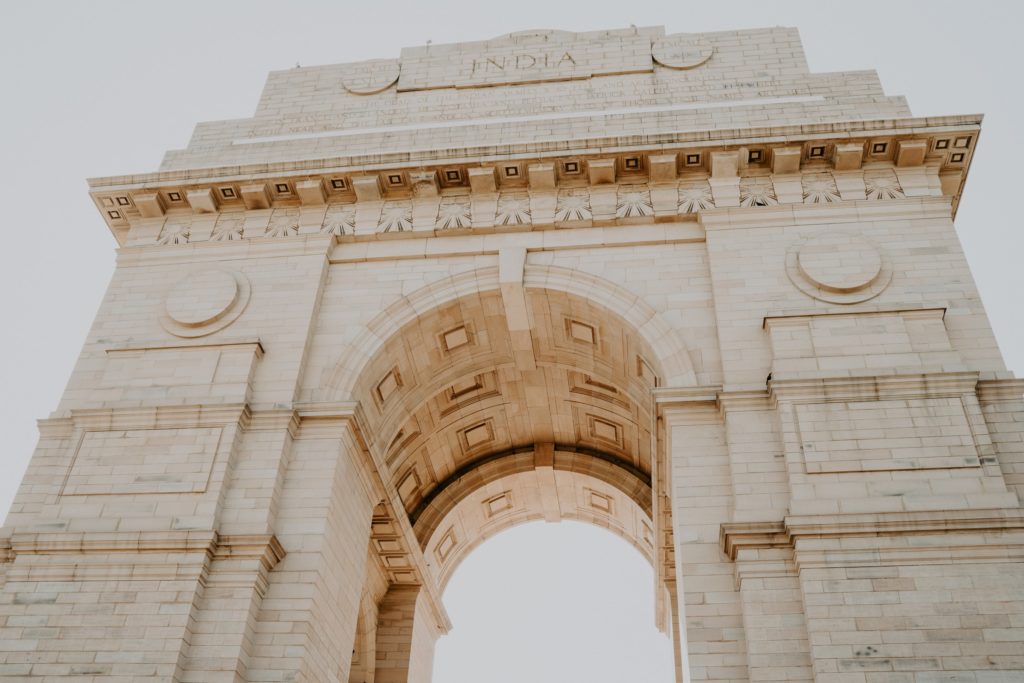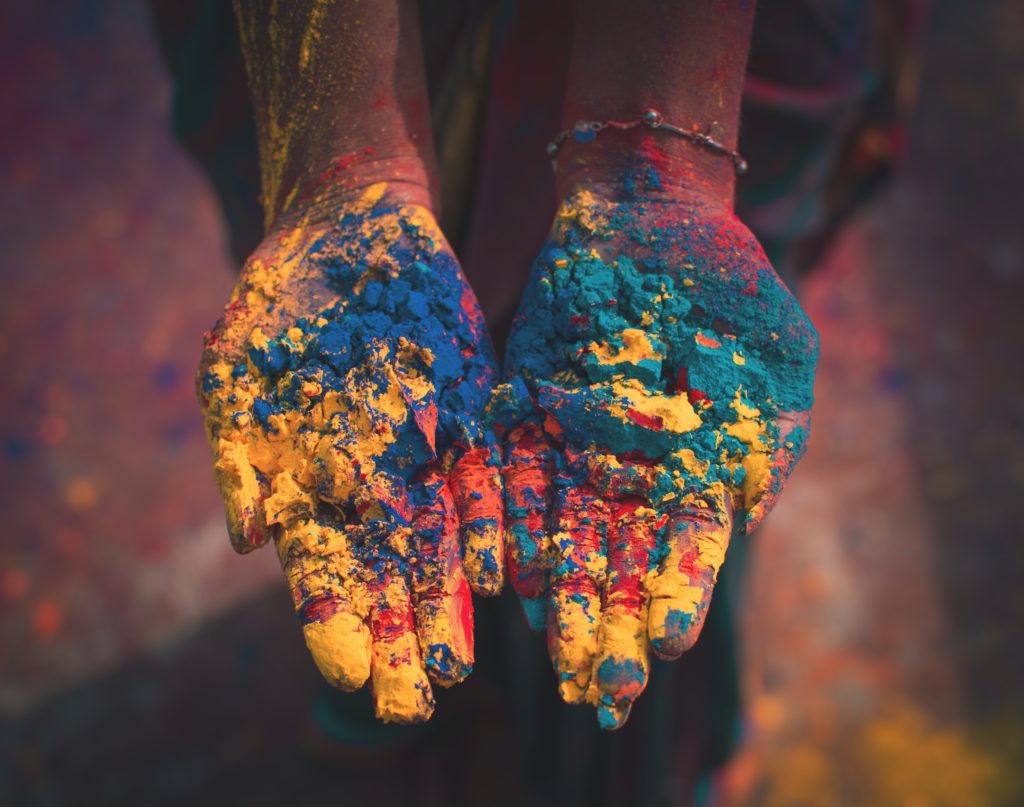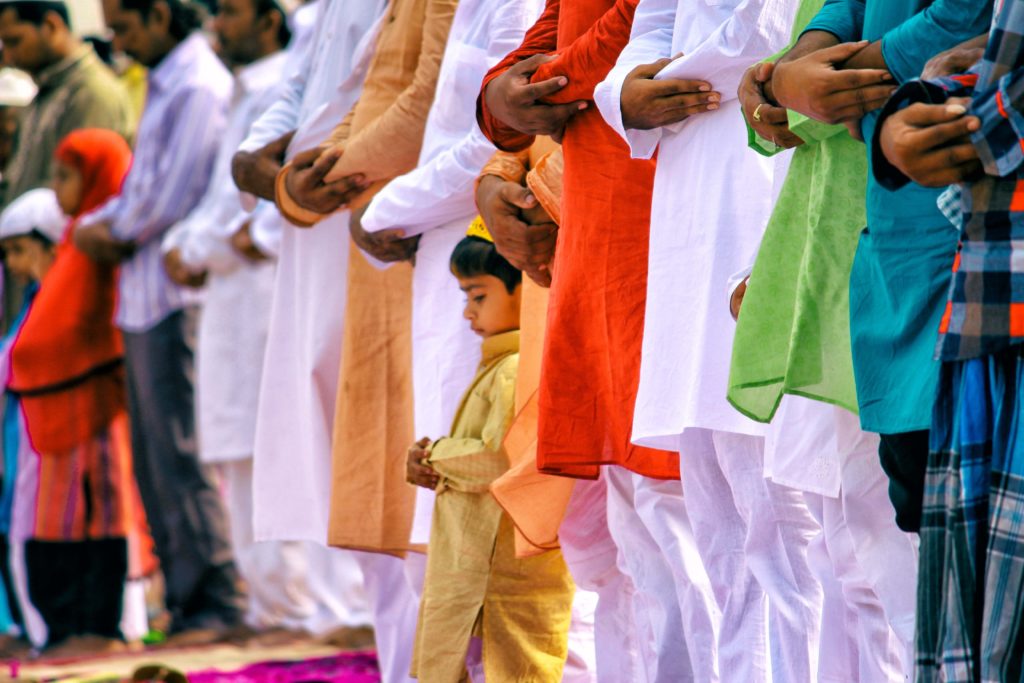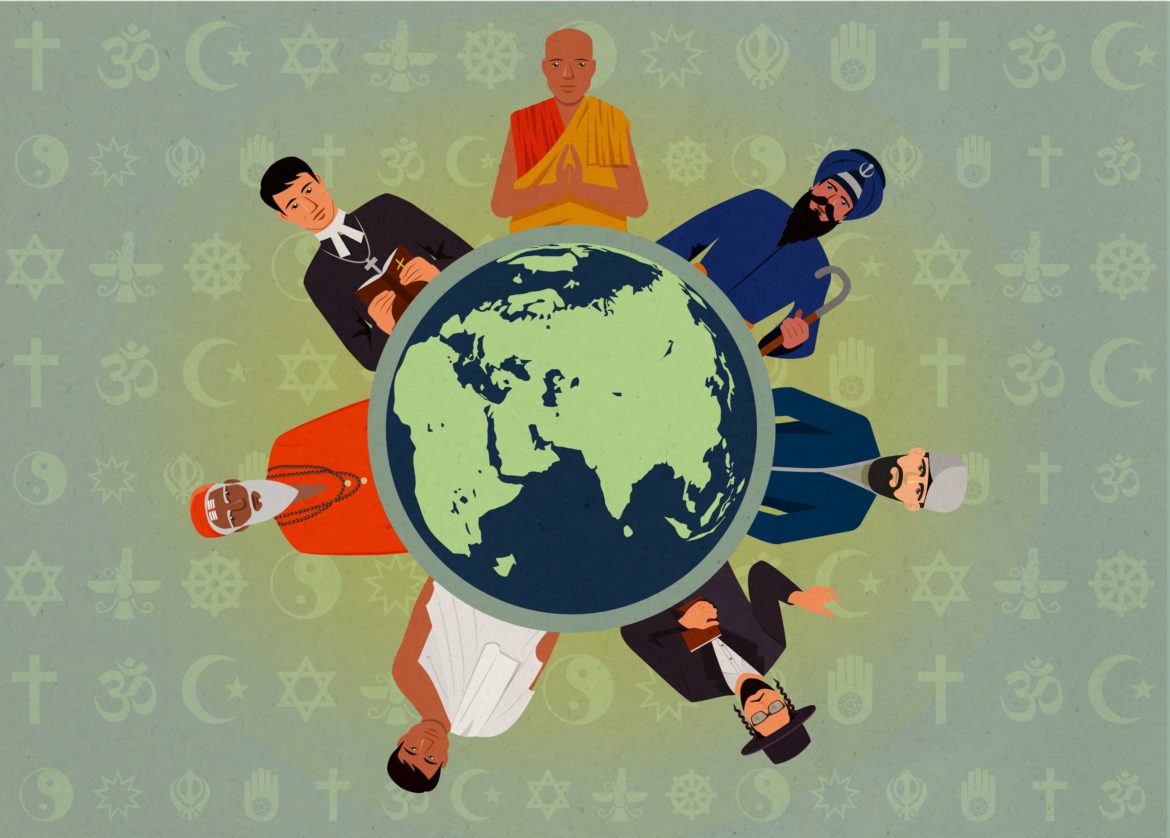Cover Illustration by Amlan Barai
Imagine setting out on a train journey across India, not across its land-mass but across Time, what would you notice as you looked out the window at the changing landscape during your life-span? If you’re feeling really adventurous, put yourself in someone else’s skin for a bit and picture what they’d see. There are over a billion versions of reality dotting this land, a never-ending raucous multitude of stories eagerly waiting to be noticed. This is one such perspective.
The Unknown

Photo by Annie Spratt on Unsplash
‘Afsana,’ a word that means a story, a work of fiction, a fairytale. Afsana, that’s my name.
Throughout my childhood, each time my father was transferred to a different small town and I joined a new school, the inevitable question about religion followed the disclosure of my unusual name. It didn’t matter whether I met the child on the playground, at a birthday party or in class, religion had to be ascertained and my identity neatly boxed away in the right cubby-hole in their mind. At the time, few adults knew what a ‘Parsi’ was, definitely, no children did, and when I said ‘Parsi’ a look of utter bewilderment would pass over the child’s face. In hindsight, that wasn’t surprising considering how few Parsis there are in India and the proportion of the population that is concentrated in Mumbai and Gujarat. Few people in small towns outside Gujarat had ever met a Parsi before or even read about one.
“Parsi?! Woh kya hota hai ?” (‘what is that’), said with a mix of candour and curiosity as only a child can.
If the child was more playful and confident, we indulged in a short session of 20 Questions.
“Parsi! You’re from Persia, baahar se?” (“from outside”, i.e. abroad, question accompanied by a wide-eyed, glamour-struck expression )
“No, I’m Indian, same as everyone else, though my ancestors migrated from Persia many many centuries ago.” (“sorry to disappoint you,” went the parallel track in my mind)
“If you belong to Persia, then you must be a Muslim.” (“Aha!”)
“I’m from Gujarat, not Persia, and I’m not a Muslim.”
“Then you must be a Christian.” (Certainty in the tone now, we’ve narrowed down options)
“No, not Christian either.”
“Par phir tum ho kya? (‘But then what are you?’ in a despairing wail.)
Here we go again, I’d think to myself, and start off with my explanation — fled Persia centuries ago to escape persecution, landed in Gujarat, kind king, sugar in the milk, etc. If the listener still looked flummoxed, I’d throw in that Parsis worship fire and the sun, details that added a tinge of the familiar to this unknown religion. Occasionally, faced with a young skeptic, I’d need a really strong argument to prove that this was not a sect of either Islam or Christianity and that Parsis actually existed in India. Then I’d play my trump card, “there’s even an Amar Chitra Katha comic about the religion, you can borrow it from me and see.”
This introduction ritual is one that was repeated throughout my childhood. I never felt discriminated against in any way, but for a few moments, the strangeness of my name and identity was almost palpable, and I knew that it was important to resolve the confusion it caused others.
Religion never had more than a transient role in our interactions though. Once the set of religions in the listener’s mind expanded to include one more, it was soon forgotten; India was a patchwork quilt of so many types of identity anyway. Laughing over Kutchu searching for his glasses in a chapter of our textbook, or looking for something tasty in each other’s tiffin-boxes, or fighting over who was out in pitthhoo were far more important activities than discussing religion.
As the lyric we sang so often during School Assembly went:
हम बुलबुलें हैं इसकी यह गुलसिताँ हमारा
(We are its nightingales, and it is our garden abode)
The Uncertain

Photo by Debashis RC Biswas on Unsplash
In a small town in South India during the early 80s, little Sunny was so excited he could barely wait while his mother stuffed a big packet of brightly wrapped toffees into his school-bag. It was his Birthday, and his chance to proudly hand out toffees to each student in the class. Just before tiffin-break, when a solemn-faced teacher walked into class to announce an early end to the school day, it filled his heart with glee — an unexpected holiday on his birthday!
On the walk back to their own homes, Sunny’s young friends unwrapped and ate the toffees they’d received; along with the toffee wrappers the wind spread the news throughout the locality – the Singh family was celebrating instead of mourning the assassination of India’s leader. The next morning, as Sunny’s father Mr. Singh drove through the local market on his way to the office, a few well-aimed stones hit his scooter. This was South India though, unlike the conflagration that engulfed the North, the anger here soon sputtered out.
For a few days after the incident, neither Sunny nor his sister Simran came out to play with us in the evening, their parents were worried about them. Grown-ups sometimes defy all logic, we thought; when we came to blows with Sunny because he was cheating and refusing to get out in pitthoo or dodgeball or chain kho, no parent seemed to care a whit, but now they were worried that we’d ‘blame’ him! Quite silly, we considered it – why would we blame either Sunny or Simran over bullets that someone else fired far away in Delhi?
This was the first time that I recall observing religion lurk outside of homes and places-of-worship. At that age I didn’t pay it much attention though, just shrugged and carried on playing with friends, and Sunny and Simran were back after a few days too.
I guess ‘growing up’ is when you slowly begin to notice more of what’s going on outside your immediate environment; most of us learn to shrug, look away and turn things unseen.
In the early 90s, a pile of black stone in a city in the North was the focus of the news cycle, locating identities and objects in history had become more important than cementing current ties. During the riots that followed, a Parsi friend who had a Muslim-sounding first name** started carrying his brother’s train-pass and identity-card in his wallet, his own was hidden away deep inside his bag; if caught in a difficult situation, he wanted to be sure that he had a neutral-sounding name to show. Ever tasted the bitterness of admitting that your own name may unwittingly let you down?
मज़हब नहीं सिखाता आपस में बैर रखना
(Religion does not teach us to bear ill-will among ourselves)
** A lot of Parsi first names are popular names in Islam too – Shirin, Yasmin, Meher, Pervez, Danish, Feroze, etc.
The Unravelling

Photo by Harsh Bhushan Sahu on Unsplash
As various forms of identity were increasingly leaned on for electoral victory, the fraying social fabric unravelled a few stitches at a time. As the space for differences shrank, the grammar of the republic expanded to include terms such as ‘appeasement’, ‘bhakt’, ‘sickular’, ‘libtard’ etc. In once proudly cosmopolitan cities, the environment developed rough corners and jagged edges. Even Muslims with successful careers found that their name made them unacceptable tenants to many landlords, forcing them to compromise and choose from among the limited options available for renting a home. Others spoke of an unending job search, a few of feeling that they were being profiled and their suitcases were being rifled through whenever they travelled.
The acrid air slowly seeped in through various cracks and crevices, affecting more than just one segment of the edifice of India. A friend’s six-year-old son went to a birthday party and returned in tears, terrified for his future — his vegetarian friend’s Mum had told him that those who ate non-veg food were going to go to hell, and no amount of temple visits and praying could save them. Cruelty has many avatars, with righteousness and rigid belief at the core of many of them. In this country, you might shoot a human in public and get away with it, but tie a string to a bovine to lead it to market and there’s a mob ready to mete out instant justice.
Righteousness and rigidity played Hero and Villain roles equally in many flame wars on social media too. I found that my unusual name could still confuse strangers about my identity and take the conversation in unexpected directions. I made a cynical comment in a discussion on a friend’s Facebook page one day, only to find another friend of his belligerently questioning, “Do you know how women are treated in Pakistan? You should stop complaining and consider yourself lucky to be in India.” That episode eventually ended well, but it made me wonder — if being perceived as a Muslim can bring out the worst in an interaction, what must it be like to live with a surname such as Khan, Hussain, or Siddiqui? That invisible dartboard pinned to the forehead, does it weigh them down? How long before bitterness and cynicism set in?
It took Aman to show me what deep roots hope, belief and brotherhood have. ‘Aman’, a word that means peace, safety, trust.
This incident occurred a few months after the momentous day when all the black money in India was eradicated overnight and the populace stood in queues to collect their just reward the next morning. I was out to dinner with some friends and the conversation turned to business and the economy. A few of us – one a Muslim called Aman — were despondent about what lay ahead, while one friend firmly Believed that acchhe din lay ahead. The Believer took umbrage at Aman’s opinions, and suddenly the conversation veered from economics towards politics and religion and there was a raging argument going on. Eventually, we noticed the pin-drop silence in the restaurant and the worried looks in our direction, so we dialled it down, but enough had been said that I was livid with The Believer and wanted nothing to do with him thereafter.
Aman was made of sterner fibre though. A few weeks later, he called to tell me that he had invited The Believer out for drinks and dinner and would like me to join as well. When I asked him whether he’d completely lost his marbles, he told me that he wanted to understand why The Believer thought that way, and to remind him that we were all friends once. Then he gently pointed out to me that there is no way out of this mess but to hold on to the promise of fellowship and brotherhood. Aman ki Asha (the hope of peace), quite literally.
Over time, I learnt to recognize the subtle signs of a rancorous discussion beginning and to change the topic before the conversation built up momentum, occasionally to ignore a bigoted remark even. The act of making an excuse to your conscience and looking away is not difficult, but every time you do that it corrodes a tiny piece of your soul.
These verses by S&S illustrate the liberal dilemma effectively:
It seems to me that
Nowadays
I just need to
Shake my head
To lose a friend
Should I then
Keep nodding to
Keep them?
While I was meekly considering the merits of a head-shake vs. a nod, and searching for answers in books about our history and society, the wheel of time turned again and the news cycle had a new topic to focus on. This time, an entry to a carnival was being discussed acrimoniously, the ticket price and the patron definition the subject of reams of newsprint and many talking heads on TV.
Did you read about that carnival too, about the door with the paper-chomping cogs and wheels whirring behind it? Ever wondered whether the door is being held half-open, or whether it is shutting, ever so slowly but implacably, cutting off the space for plurality and differences?
सारे जहाँ से अच्छा हिन्दोस्तां हमारा
हम बुलबुलें हैं इसकी यह गुलसिताँ हमारा
(Better than the entire world is our Hindostan
We are its nightingales, and it is our garden abode)
